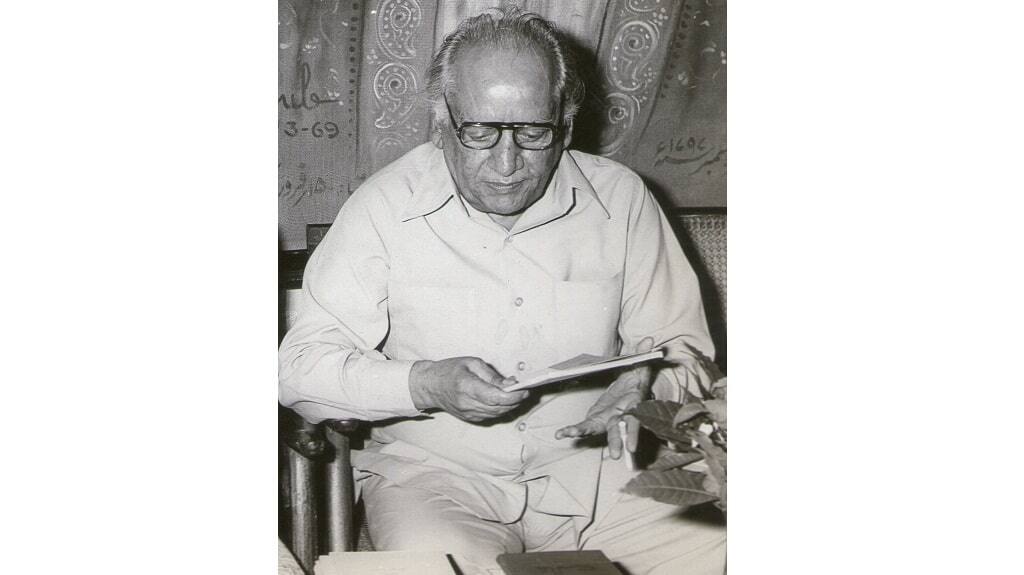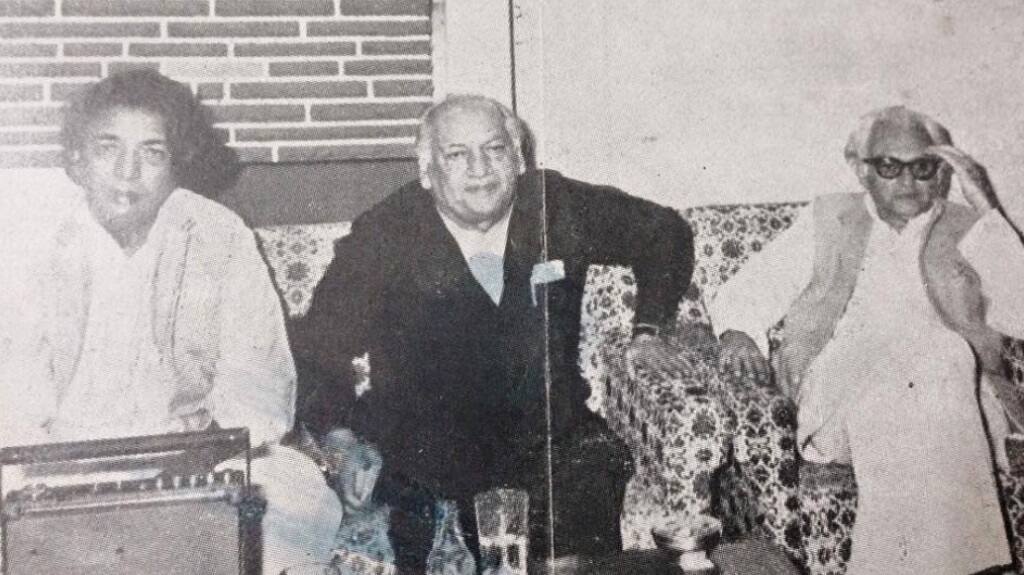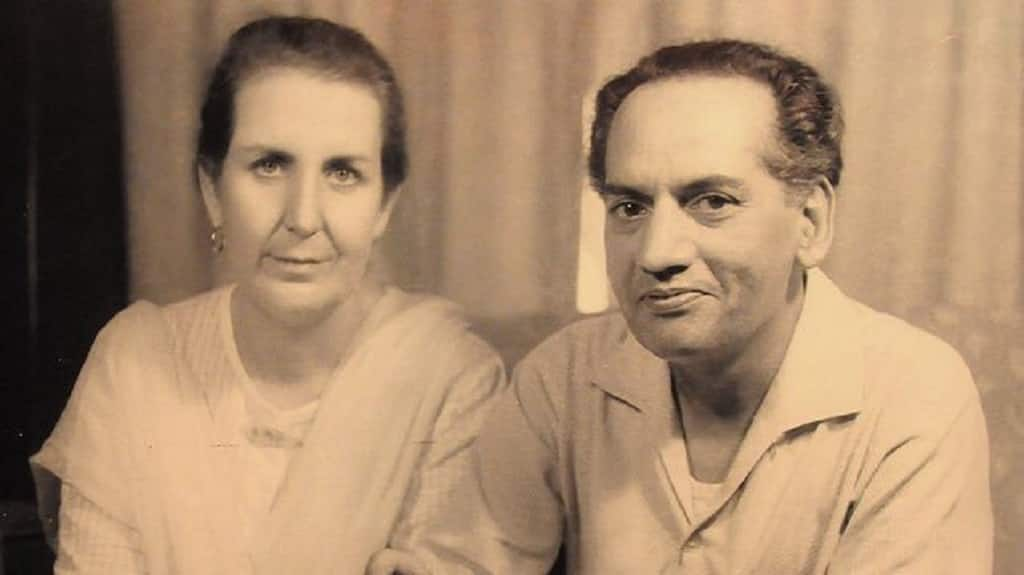By Subhash Gatade In this conversation academician, writer and social activist Zaheer Ali talks about his latest book Romancing With Revolution: Life and Works of Faiz Ahmed Faiz (Aakar Books, Delhi, 2019) and why Faiz is ‘ extremely relevant in today’s India’. This is the hour of madness, this too the hour of chain and noose You may hold the cage in your control, but you don’t command The bright season when a flower blooms in the garden. So, what if we didn’t see it? For others after us will see The garden’s brightness, will hear the nightingale sing… - This Hour of Chain and Noose (Faiz, Tauq o dar ka Mausam, 1951)
 Faiz Ahmed Faiz was nominated for the Nobel Prize in 1963.[/caption][/lq] SG: For quite a few people, who have read, sung and admired Faiz all their lives and still draw inspiration from him, there are two episodes in his life which rather give a discomforting feeling. One is his reaction (or say the lack of it) when British-ruled India was partitioned into two countries and the second concerns separation of Bangladesh from Pakistan after a very bloody civil war. In the chapter ‘Faiz: The Man’ (Page 83) you also mention ‘Faiz lamented the lack of true independence in the independence…in his famous poem, Yeh Daag Daag Ujala, he as such, did not take a stand against the division of the country.’ We are also told that Faiz rather maintained a similar ambivalence when the Pakistan army led by its Generals resisted the creation of Bangladesh. Is it true? How does one explain this ambivalence of a man who was a Marxist and as you write stuck to humanism all his life? ZA: There are two posers in your third query. First of all we must not lose sight of the fact that Faiz was neither a card holder of the Communist Party nor he was a freedom fighter in the sense the term is used in India. Immediately before the dawn of purported ‘independence’ he was in the British Indian army and you know why. You must also keep in mind that the CPI did not keenly oppose the partition of the country. Faiz never thought that what we got by way of independence was a sham and his famous poem on the subject is testimony to the fact. On the issue of Bangladesh, his studied reticence naturally surprised many of his true admirers. After all he was a father of two daughters without a proper source of income, he was ageing and a marked man in Yahya Khan’s Pakistan. This made him vulnerable though it does not justify his ambiguous standpoint on the massacre of Bengalis by the Pakistani armed forces. [rq][caption id=“attachment_7722291” align=“alignnone” width=“1024”]
Faiz Ahmed Faiz was nominated for the Nobel Prize in 1963.[/caption][/lq] SG: For quite a few people, who have read, sung and admired Faiz all their lives and still draw inspiration from him, there are two episodes in his life which rather give a discomforting feeling. One is his reaction (or say the lack of it) when British-ruled India was partitioned into two countries and the second concerns separation of Bangladesh from Pakistan after a very bloody civil war. In the chapter ‘Faiz: The Man’ (Page 83) you also mention ‘Faiz lamented the lack of true independence in the independence…in his famous poem, Yeh Daag Daag Ujala, he as such, did not take a stand against the division of the country.’ We are also told that Faiz rather maintained a similar ambivalence when the Pakistan army led by its Generals resisted the creation of Bangladesh. Is it true? How does one explain this ambivalence of a man who was a Marxist and as you write stuck to humanism all his life? ZA: There are two posers in your third query. First of all we must not lose sight of the fact that Faiz was neither a card holder of the Communist Party nor he was a freedom fighter in the sense the term is used in India. Immediately before the dawn of purported ‘independence’ he was in the British Indian army and you know why. You must also keep in mind that the CPI did not keenly oppose the partition of the country. Faiz never thought that what we got by way of independence was a sham and his famous poem on the subject is testimony to the fact. On the issue of Bangladesh, his studied reticence naturally surprised many of his true admirers. After all he was a father of two daughters without a proper source of income, he was ageing and a marked man in Yahya Khan’s Pakistan. This made him vulnerable though it does not justify his ambiguous standpoint on the massacre of Bengalis by the Pakistani armed forces. [rq][caption id=“attachment_7722291” align=“alignnone” width=“1024”]
 Kaifi Azmi, Faiz Ahmed Faiz and Ghulam Rabbani Taban are photographed together.[/caption][/rq] SG: Whenever one thinks of Faiz, one is reminded of Alys (1914- 2003) who started her life as a member of the British Communist Party at the age of 16 and who in the words of a commentator ‘..gave her today for a better tomorrow of the South Asian People’. She was an accomplished journalist and activist as well and one gets a feeling that a proper evaluation of her role has to be done yet? Any comment? I cannot stop myself from quoting one of her poems which she had written for Faiz: I Will Sing of You Later, / When the tread of a thousand feet / the unending roll of sorrow / the breath of roses enfolding / the eulogies, the warranted praise / the drawn out memories of others / the grief of recalling, / the total acceptance of death are over. Then I will sing, / Not to the tread of thousand feet, / nor to the roll of sorrow / Nor will I lift the roses nor echo praise nor recall, nor accept / My song neither begins nor ends / It is eternity. (A Poem for Faiz written by Alys) ZA: Alys was indeed a great lady, a committed Marxist, a devoted wife and a doting mother. I have quoted her at a couple of places in the book. A British Marxist lady whose husband was accused of sedition surviving with two daughters in the fanatically religious nation of Pakistan was itself a great achievement. I agree that her role with Faiz and as an individual should be properly assessed in a study. I am also looking forward to such a book. [lq][caption id=“attachment_7722081” align=“alignnone” width=“1024”]
Kaifi Azmi, Faiz Ahmed Faiz and Ghulam Rabbani Taban are photographed together.[/caption][/rq] SG: Whenever one thinks of Faiz, one is reminded of Alys (1914- 2003) who started her life as a member of the British Communist Party at the age of 16 and who in the words of a commentator ‘..gave her today for a better tomorrow of the South Asian People’. She was an accomplished journalist and activist as well and one gets a feeling that a proper evaluation of her role has to be done yet? Any comment? I cannot stop myself from quoting one of her poems which she had written for Faiz: I Will Sing of You Later, / When the tread of a thousand feet / the unending roll of sorrow / the breath of roses enfolding / the eulogies, the warranted praise / the drawn out memories of others / the grief of recalling, / the total acceptance of death are over. Then I will sing, / Not to the tread of thousand feet, / nor to the roll of sorrow / Nor will I lift the roses nor echo praise nor recall, nor accept / My song neither begins nor ends / It is eternity. (A Poem for Faiz written by Alys) ZA: Alys was indeed a great lady, a committed Marxist, a devoted wife and a doting mother. I have quoted her at a couple of places in the book. A British Marxist lady whose husband was accused of sedition surviving with two daughters in the fanatically religious nation of Pakistan was itself a great achievement. I agree that her role with Faiz and as an individual should be properly assessed in a study. I am also looking forward to such a book. [lq][caption id=“attachment_7722081” align=“alignnone” width=“1024”]
 Alys was born in London, but later became a naturalised citizen of Pakistan.[/caption][/lq] SG: What are your future plans? My future plan includes a book on Averroes (Ibn e Rushd), a 12th century Spanish Muslim scholar who is truly known as the father of secularism. The major difficulty for me is that some of the reliable sources about the life and works of Averroes are still available in Arabic only, a language that I don’t know. So, if this does not materialise, then I will write something on political Islam.
This article was originally published on Kafila
.
Alys was born in London, but later became a naturalised citizen of Pakistan.[/caption][/lq] SG: What are your future plans? My future plan includes a book on Averroes (Ibn e Rushd), a 12th century Spanish Muslim scholar who is truly known as the father of secularism. The major difficulty for me is that some of the reliable sources about the life and works of Averroes are still available in Arabic only, a language that I don’t know. So, if this does not materialise, then I will write something on political Islam.
This article was originally published on Kafila
.
Romancing With Revolution: Author Zaheer Ali on the life and works of Faiz Ahmed Faiz
Kafila
• December 1, 2019, 12:02:31 IST
All those who believe in liberty, equality, justice and intend to transform the socio-economic and political conditions in the India may seek inspiration from Faiz’s poetry, says Zaheer Ali.
Advertisement
)
Above: Cover of Zaheer Ali’s new book on legendary Marxist poet Faiz Ahmed Faiz. Image via Kafila. Like Ghalib, it is rather difficult for anyone to recollect when and how Faiz entered our lives. When did one first read his Matae Lauho Kalam or Darbare Watan Me Jab Ek Din or his depiction of the beloved’s Samundar Aakhein, or heard about the travails and tribulations he faced in his life or the tremendous love and affection he was showered with wherever he went. In fact, with passage of time, one’s fascination for Faiz seems to be increasing and that is a marker of his growing popularity that despite publication of quite a few books, monographs and articles on Faiz, one’s thirst to know him does not seem satiated. Prof Zaheer Ali’s book Romancing the Revolution – Life and Works of Faiz Ahmed Faiz is a welcome addition to this ever growing collection. We posed few queries before Prof Zaheer Ali and here follows his response: Subhash Gatade (SG): Prof Zaheer Ali, Congratulations for this beautiful book on Faiz, which has very succinctly brought out various facets of Faiz’s life. My first query is to you, as a person. We have known you more as a social activist and an academician – basically a political scientist – who has many books to his credit as well and now a full book length study on Faiz, but these are formal details. Can you tell us more about yourself? Zaheer Ali (ZA): The first query is about me, personally. You got a bit surprised to see my book length study of Faiz because you are not aware of my works in Urdu. Prior to this study of Faiz, I have written a book in Urdu — Allusions in the Poetry of Faiz. I have other books, mostly literary criticism in Urdu. I am known to Urduwallahs more as a literary critic than a social scientist and activist. SG: In the preface of the book you emphasise how Faiz is ‘extremely relevant in today’s India’. It has been more than three decades that Faiz breathed his last (1984), and situation the world over has undergone tremendous changes. For a layperson it is rather difficult to fathom this idea of relevance. Can you please explain why you think so? ZA : My comment about his relevance is in the sense that all those who believe in liberty, equality, justice and intend to transform the socio-economic and political conditions, in particular, in the Indian subcontinent may seek inspiration from his poetry. The reason is that, Faiz all his life was struggling against dictators and the unjust social order. We in India are faced with fascism. In the preface to my book I have also commented that organised fascism is much more dangerous and threatening to human values than dictatorship. So the progressives of myriad hues in India may seek inspiration from Faiz. In this sense he is relevant. [lq][caption id=“attachment_7722011” align=“alignnone” width=“1024”]
End of Article